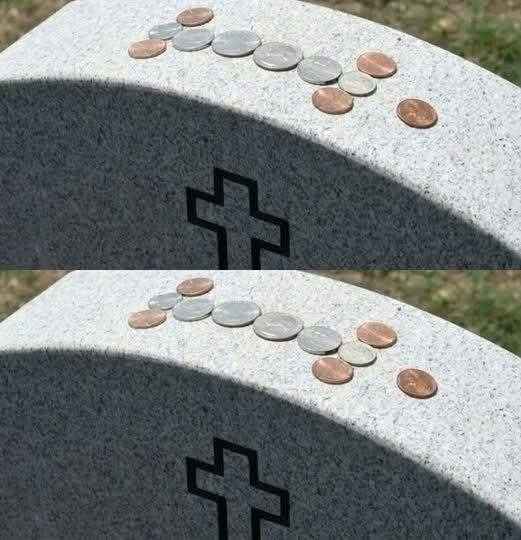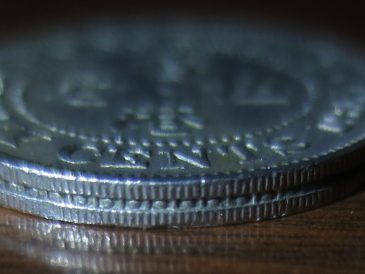Origins of the Tradition
Leaving coins on gravestones is a longstanding tradition with roots in ancient cultures. The practice gained widespread recognition in the U.S. during the Vietnam War as a way to honor fallen soldiers.
Possible Historical Influences
– Greek and Roman Mythology: Coins were placed on the eyes or in the mouths of the dead to pay Charon, the ferryman who carried souls to the afterlife.
– American Civil War: Soldiers may have left coins to settle debts or mark visits.
The Symbolism of Different Coins
In U.S. military cemeteries, the type of coin left on a headstone carries a specific meaning:
– Penny (1¢): A general sign of respect
– Nickel (5¢): Indicates the visitor trained with the deceased at boot camp
– Dime (10¢): Means the visitor served with the soldier
– Quarter (25¢): A powerful message: the visitor was present when the soldier died
Other Meanings and Customs
– Coins Placed Upright: May symbolize active remembrance
– Foreign Coins: Signify that the visitor came from afar to pay tribute
– Jewish Tradition: Small stones are often placed instead of coins, symbolizing permanence
– Non-Military Graves: Some leave coins on civilian graves as a simple memorial
Why People Still Leave Coins Today
– To Honor the Dead: A silent yet meaningful gesture of respect
– For Military Families: Helps loved ones feel connected to those who have passed
– Charity and Maintenance: Collected coins may fund veteran services or grave upkeep
Final Thoughts
A coin on a gravestone is more than just spare change—it’s a quiet, powerful tribute to those who have passed.





